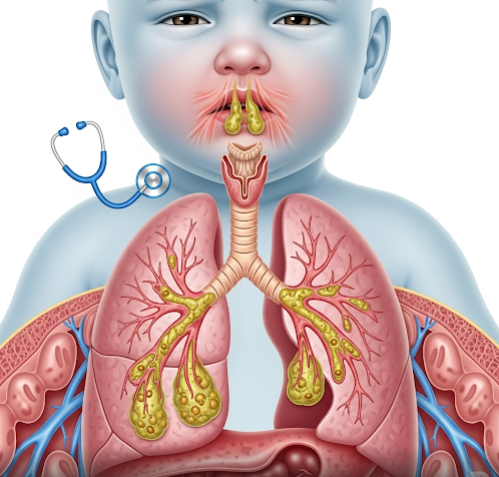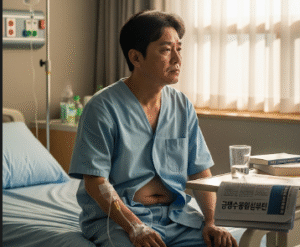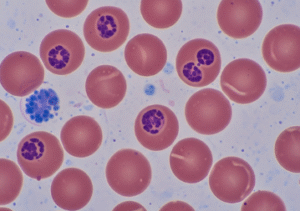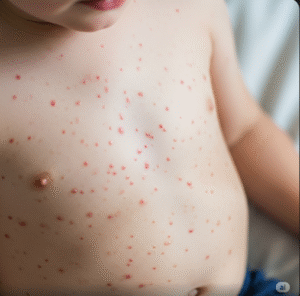Overview
Respiratory Syncytial Virus (RSV) is a leading cause of respiratory infections in babies and young children worldwide. It commonly causes bronchiolitis and pneumonia, leading to breathing difficulties, hospitalizations, and sometimes severe complications. In Korea, pediatric specialists provide expert diagnosis and comprehensive care to manage RSV infections in infants and children, aiming for fast recovery and prevention of complications.
What is RSV in Babies & Children?
RSV is a highly contagious virus that infects the respiratory tract, causing inflammation and obstruction of small airways, especially in babies and young children. It spreads easily through droplets or contact with contaminated surfaces. Babies under 1 year, especially premature or with underlying health conditions, are at highest risk of severe illness.
Symptoms
- Runny or stuffy nose
- Persistent cough and wheezing
- Rapid or difficult breathing (nasal flaring, chest retractions)
- Fever (sometimes high)
- Poor feeding and irritability
- Apnea (pauses in breathing) in very young or high-risk infants
- Fatigue and lethargy in severe cases
Causes
- Infection by Respiratory Syncytial Virus transmitted via respiratory droplets or contaminated hands/objects
- Exposure to infected family members, daycare, or crowded environments
Risk Factors
- Age below 12 months, especially under 6 months
- Premature birth or low birth weight
- Chronic lung diseases (bronchopulmonary dysplasia)
- Congenital heart disease
- Immunodeficiency or weakened immune system
- Exposure to tobacco smoke or crowded living conditions
Complications
- Severe bronchiolitis leading to hospitalization
- Pneumonia and respiratory failure
- Dehydration due to poor feeding and vomiting
- Apnea and sudden breathing pauses
- Increased risk of wheezing or asthma later in childhood
Prevention
- Frequent handwashing and good hygiene around babies
- Avoiding contact with sick individuals
- Cleaning and disinfecting toys, surfaces, and hands regularly
- Breastfeeding to support infant immunity
- Palivizumab injections for high-risk infants during RSV season in Korea
Treatment Options in Korea
Korean pediatric healthcare providers offer supportive and specialized care for RSV in babies and children:
- Supportive Care: Oxygen therapy, suctioning nasal secretions, hydration, and fever control.
- Hospitalization: For severe cases requiring respiratory support or intensive monitoring.
- Preventive Treatment: Palivizumab prophylaxis for premature infants and those with heart or lung conditions.
- Parental Education: Guidance on symptom monitoring, feeding, and when to seek urgent care.













